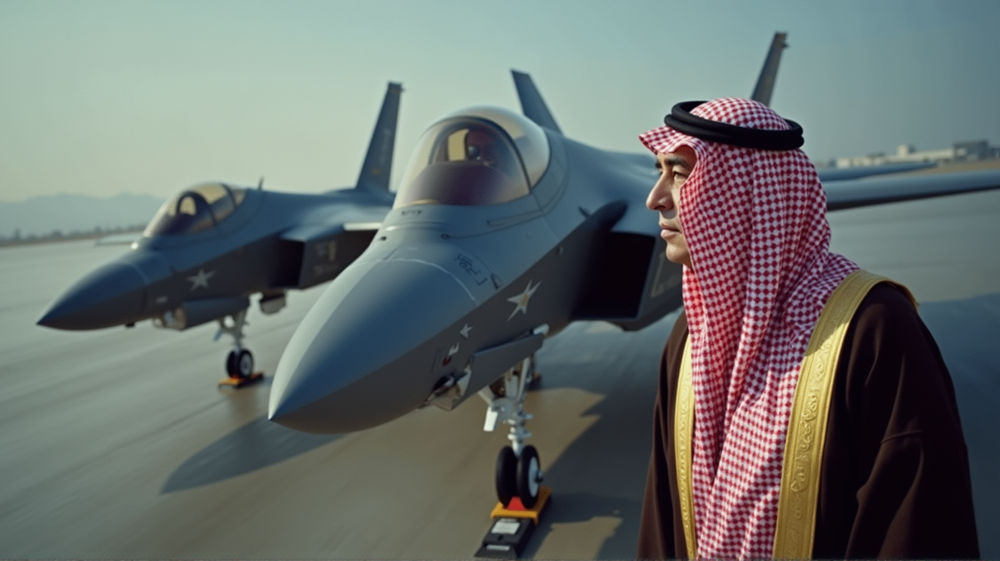In a development that could reshape international relations, former U.S. President Donald Trump has revealed potential high-stakes negotiations with Saudi Arabia for the purchase of F-35 stealth fighters. This move, indicative of deeper economic and defense ties, comes ahead of Trump’s crucial meeting with Saudi Crown Prince Mohammed bin Salman.
High Hopes and Stealth Fighters
Trump’s announcement aboard Air Force One, expressing Saudi Arabia’s interest in acquiring a substantial number of F-35 jets, signals a potential turning point. “They wanna buy a lot of jets,” Trump stated, pointing out the Saudis’ quest for more than just advanced aircraft. The deal could potentially be the linchpin for broader diplomatic engagements.
The Abraham Accords: A Broader Vision
As part of the broader diplomatic landscape, Trump reiterated his hopes for Saudi Arabia to join the Abraham Accords. Already a landmark agreement enabling normalization between Israel and several Muslim-majority countries, the addition of Saudi Arabia could revolutionize regional dynamics and augment U.S. influence vastly. According to i24NEWS, this could serve as a pivotal leap in Middle Eastern diplomacy.
A New Era in Middle Eastern Politics
Riyadh’s alignment with the Abraham Accords would be significant, resonating through both political and security spheres in the Middle East. Trump’s vision is clear: “I hope to see Saudi Arabia go in, and I hope to see others go in. I think when Saudi Arabia goes in, everybody goes in,” he asserts, envisaging cascading diplomatic harmonies.
Economic Opportunities on the Horizon
Beyond politics, this potential F-35 deal integrates economic interests, strengthening bonds between the U.S. and one of its key Middle Eastern allies. As Trump and the Saudi crown prince prepare to convene at the White House, this narrative develops amidst burgeoning opportunities for collaboration.
A Strategic Shift for the Future
The anticipation around this potential deal highlights shifting alliances and the dynamic nature of global relations. As the U.S. considers extending high-tech military capabilities to Saudi Arabia, observers keenly watch what this might mean for future geopolitical strategies.
With Middle Eastern politics at a crossroads, the trajectory of these talks could herald new opportunities and challenges, reshaping the narrative for years to come.












